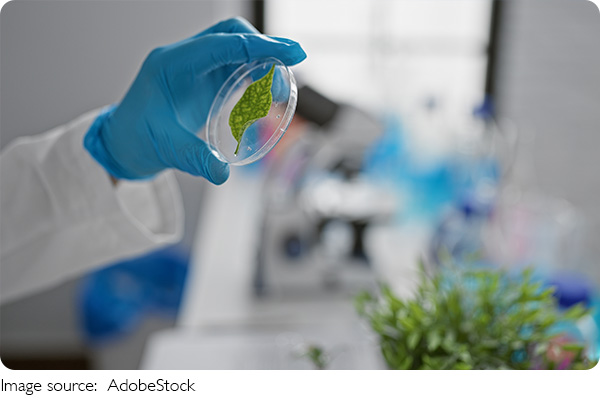Biotechnology Breakthroughs

Imagine a world where genetic diseases are no longer a life sentence, where treatments are tailored specifically to each individual, and where we can edit the very genes that cause debilitating diseases.
This is the promise of biotechnology, and in recent years, we've made remarkable strides in the realm of gene editing and personalized medicine.
Gene editing technologies, like CRISPR-Cas9, have made it possible to alter the DNA within living organisms, offering a potential cure for previously untreatable genetic disorders. Personalized medicine, on the other hand, promises to tailor healthcare treatments to the individual's genetic makeup, ensuring more effective and targeted therapies. But, while these technologies offer hope, they also raise critical ethical questions and social concerns. In this article, we'll explore the revolutionary impact of gene editing and personalized medicine, the potential benefits they offer, and the challenges they pose.
Gene Editing: The Promise of CRISPR
One of the most groundbreaking advances in biotechnology has been the development of CRISPR-Cas9, a powerful tool that allows scientists to edit the genetic code with precision. This technology, discovered in 2012, enables researchers to cut and modify DNA at specific locations, potentially correcting genetic mutations that cause diseases.
The most exciting potential of CRISPR lies in its ability to treat genetic disorders such as sickle cell anemia, muscular dystrophy, and even Huntington's disease. By editing the genes responsible for these conditions, scientists hope to not only treat the symptoms but actually cure the diseases at their genetic root.
For example, in 2019, scientists successfully used CRISPR to treat a patient with sickle cell anemia by editing their blood cells to produce normal hemoglobin. The patient's condition, which had been lifelong and debilitating, was dramatically improved, signaling a new frontier in genetic medicine.
However, while the potential is immense, there are still significant challenges to overcome. Off-target effects, where CRISPR accidentally edits the wrong part of the genome, and ethical concerns about germline editing (editing the genes of embryos) are issues that need careful consideration.
Personalized Medicine: Tailoring Treatments to You
In addition to gene editing, personalized medicine is another major breakthrough that is revolutionizing the way we approach healthcare. Unlike the traditional "one-size-fits-all" approach to medicine, personalized medicine involves tailoring treatments based on a person's genetic makeup, lifestyle, and environment.
Genetic tests can now determine how an individual's body will respond to certain medications, allowing doctors to prescribe the most effective treatment with the least risk of side effects. For instance, pharmacogenomics is a branch of personalized medicine that helps determine the optimal drug dosage for patients based on their genetic profile. This reduces the trial-and-error process of finding the right medication and improves patient outcomes.
Additionally, personalized medicine is particularly valuable in the treatment of cancer. By analyzing the genetic mutations within a patient's tumor, doctors can develop targeted therapies that attack the cancer cells directly, leaving healthy cells unharmed. This approach has shown remarkable success in treating certain types of cancer, offering hope for more effective treatments in the future.
The integration of artificial intelligence (AI) with personalized medicine is further enhancing its capabilities. AI can analyze vast amounts of genetic data, enabling faster and more accurate diagnoses and treatment plans.
Ethical Dilemmas: Navigating the Grey Areas
While gene editing and personalized medicine hold enormous promise, they also raise complex ethical and social questions. One of the most controversial issues surrounding gene editing is the potential for designer babies—genetically modified embryos that are engineered to have specific traits, such as intelligence or physical appearance. This possibility sparks debates about the ethics of altering the genetic makeup of future generations.
There are also concerns about the unequal distribution of these technologies. Access to personalized medicine and advanced genetic treatments is still limited to wealthier individuals and nations. If these innovations remain inaccessible to the broader population, they could exacerbate existing healthcare inequalities.
Additionally, the use of CRISPR in germline editing—where changes are made to the DNA of embryos or reproductive cells—raises the question of whether we should be allowed to permanently alter the genetic code of future generations. Many experts, including Jennifer Doudna, one of the pioneers of CRISPR, have called for a global moratorium on germline editing until ethical guidelines are established.
Social Impacts: What Does the Future Hold?
The widespread use of gene editing and personalized medicine could have far-reaching consequences on society. On one hand, the ability to cure genetic diseases and tailor treatments could significantly improve the quality of life for millions of people, potentially even eradicating certain genetic disorders altogether. On the other hand, we must be cautious about the social and psychological impacts of these technologies.
For example, if gene editing becomes widely available, there could be a rise in genetic discrimination. Insurance companies, employers, or even social groups might start using genetic information to discriminate against people with certain genetic predispositions, even if those predispositions never result in actual diseases.
Furthermore, there is a fear of eugenics—the idea that we may start selecting for certain traits in order to create "better" humans, raising concerns about diversity and the value of individual differences. What happens when society begins to prioritize certain traits, such as intelligence or physical appearance, over others?

Conclusion: A New Frontier with Caution
As we move forward into this new era of biotechnology, the potential benefits of gene editing and personalized medicine are vast. These technologies promise to revolutionize healthcare, offering the potential to cure genetic diseases, create targeted treatments, and improve the quality of life for countless individuals.
However, as we embrace these innovations, it's crucial that we approach them with care. We must address the ethical issues, ensure equitable access to these advancements, and establish regulations to guide their use responsibly.
At the end of the day, biotechnology has the potential to transform human health and society, but only if we proceed thoughtfully and with a strong sense of ethical responsibility. What are your thoughts on the role of gene editing in the future of medicine? Do you think we're ready to face the ethical dilemmas it presents?
Let's continue the conversation and explore what this brave new world of biotechnology could mean for us all!
-
 Robots and AutomationAre Machines Replacing Human Labor? The Future of Work and Society
Robots and AutomationAre Machines Replacing Human Labor? The Future of Work and Society -
 Stay Mentally StrongHow Do Athletes Stay Calm Under Pressure? Master These Pro Techniques to Stay Cool and Focused in Any High-Stress Moment!
Stay Mentally StrongHow Do Athletes Stay Calm Under Pressure? Master These Pro Techniques to Stay Cool and Focused in Any High-Stress Moment! -
 Brain-Computer LinkExploring Brain-Computer Interfaces: Revolutionizing Medicine and Human-Machine Interaction
Brain-Computer LinkExploring Brain-Computer Interfaces: Revolutionizing Medicine and Human-Machine Interaction